Pilatus PC-7 Royal Netherlands Air Force
Production Time 9 to 10 weeks
Shipment is by FedEx, UPS or DHL International Express Courier with a normal door-to-door delivery time worldwide of within 2-3 business days after dispatch. Due to the current volatility of world fuel prices, the amount mentioned here is our best estimate for DHL and UPS and may be subject to change at the time of shipping.

Model Description: Pilatus PC-7 Royal Netherlands Air Force Wood Replica Scale Custom Model Aircraft
Manufacturer: Pilatus
Wingspan: 17 Inches (43.2 Centimeters)
Height: 5.6 Inches (14.2 Centimeters)
Scale: 1:23
Registration: L-04
$239.50
Production Time 9 to 10 weeks
-
United States dollar ($)
-
Pound sterling (£)
-
Euro (€)
-
Australian dollar ($)
-
Canadian dollar ($)
-
Singapore dollar ($)
-
Swiss franc (CHF)
-
Japanese yen (¥)
-
Danish krone (kr.)
-
Hong Kong dollar ($)
-
Norwegian krone (kr)
-
Swedish krona (kr)
-
United Arab Emirates dirham (د.إ)
General Product Description
Our PlaneArts Pilatus PC-7 Royal Netherlands Air Force model exhibits unique, unrivaled quality and detailed design to come as close as possible to the accuracy of the actual plane. It comes as standard with a robust, durable base or stand which is available in a variety of different finishes designed to match your own personal requirements including solid wood, wood with polished metal supports or adjustable wood wall mount and will be ready within about 9-10 weeks from placement of order.
The Pilatus PC-7 Royal Netherlands Air Force model is made of the finest kiln dried renewable mahogany wood (commonly known as Lauan or Meranti) which has undergone many stages of carving and meticulous and careful sanding giving the beautiful, finished museum quality masterpiece. Many collectors and model connoisseurs demonstrate their preference for genuine handmade and hand painted mahogany wood models rather than plastic or die cast (diecast) alternatives due to the overall look and totally different feel of the item - we trust you will find the same. We can however, if required produce the same model in Solid Cast Resin so just click and contact us for further information. Our craftsmen and gifted artisans ensure that our finely handcrafted model airplanes match the precise blueprint details of the original aircraft. The paint scheme, markings and parts are closely matched, reflecting the original aircraft. This stylish top-quality desktop replica model will surely enthrall anyone who receives this as a gift and for sure one of the most appropriate and desirably collectable gifts for any military aviation enthusiast and avid aircraft collector whilst also displaying a perfect resemblance to the actual real life version.
There are many types of military propeller aircraft, but the basic types are bombers, fighters, fighter bombers, spotter planes, transporters, patrol aircraft, trainers, and reconnaissance and observation aircraft. All these types of aircraft are used for different types of missions. If you're a fan of historic or present-day military aviation, our model aircraft will bring the excitement and character of these aircraft right into your own home. You can order a wood airplane model of a North American B-25 Mitchell Bomber, a B17 - Flying Fortress, or a P-51 Mustang Nervous Energy V not forgetting the Bf 109, Spitfire, FW 190, A6M Zero, P-38 and F4U. These classic, propeller airplane models are of the highest quality. Each is individually crafted by our expert craftsmen. They produce handmade scale mahogany airplane models of the finest aircraft from World War I and II to present day biplanes and triplanes.
If you require, we can also make the Pilatus PC-7 Royal Netherlands Air Force model in any other military, government or even private livery or colour scheme you require and if necessary, in a different size or scale. Just click here to contact us with a description or photographs of what you require, and we will let you have a quotation for the necessary customization by return email. We can also make bespoke scale replicas of any other private / civil commercial airliner or airliners, helicopter, glider, gliders with engines, military jet, warplane jets, biplane, triplane, tail fin, spacecraft, rocket or NASA model you require in any airline, military or civilian livery or colors. We also produce model airships, blimps, dirigibles, blimps, boats, and ship collectibles. Wall plaque or seal for military, government or private customers. Again, by clicking here to contact us just let us know exactly what you need.
The Pilatus PC-7 of the Royal Netherlands Air Force: A Cornerstone of Military Training
The Pilatus PC-7 Turbo Trainer aircraft has been a significant asset in the Royal Netherlands Air Force (RNLAF) for several decades, offering advanced training capabilities that prepare pilots for the complexities of modern military aviation. This Swiss-made aircraft, known for its reliability and performance, has played a pivotal role in training operations, underscoring its importance in the RNLAF’s fleet.
Historical Context and Acquisition:
The Pilatus PC-7 first entered service with the Royal Netherlands Air Force in the early 1980s. The RNLAF chose the PC-7 to replace its aging fleet of Fouga Magister jets, which were increasingly deemed inadequate for the advanced training needs of the time. The selection of the PC-7 was based on its superior flight characteristics, cost-effectiveness, and its ability to provide a solid training platform for rookie pilots.
Technical Specifications and Performance:
The Pilatus PC-7 is a low-wing tandem-seat training aircraft, powered by a single Pratt & Whitney PT6A-25A turbine engine, renowned for its reliability and durability. The aircraft is capable of achieving speeds up to 500 km/h with a range of approximately 1,000 kilometers, making it ideal for a variety of training missions. Its cockpit, equipped with conventional dials and gauges, offers new pilots the tactile experience of flying, which is crucial during the initial stages of flight training.
Training and Operational Use:
In the RNLAF, the Pilatus PC-7 is primarily used for basic flight training. Pilots learn fundamental skills such as aircraft handling, navigation, and instrument flying, which are essential for progressing to more advanced fighter jets like the F-16 or the F-35. The training syllabus includes aerobatics, night flying, and emergency procedure handling, providing a comprehensive training package that prepares pilots for future challenges.
The PC-7s are stationed at Woensdrecht Air Base in the Netherlands, home to the RNLAF’s training facilities. The aircraft are part of the 131st Squadron, which is tasked with the initial training of all RNLAF pilots. This squadron emphasizes not only the technical aspects of flying but also focuses on developing leadership skills and operational thinking.
Upgrades and Modernization:
Over the years, the RNLAF has invested in several upgrades to ensure that the PC-7 fleet remains relevant and technologically up-to-date. These upgrades include avionics improvements, such as the integration of GPS systems and modern communication equipment, which enhance the navigational capabilities and safety of the aircraft.
Future Prospects and Replacement:
While the Pilatus PC-7 continues to serve the RNLAF with distinction, discussions about its eventual replacement are underway. The aircraft, having served for several decades, will eventually need to be replaced to meet the evolving training requirements and technological advancements in military aviation. The RNLAF is considering several options for the next generation of training aircraft that will continue the legacy of the PC-7 in preparing pilots for future aerial combat and peacetime operations.
Conclusion:
The Pilatus PC-7 has been more than just a training aircraft for the Royal Netherlands Air Force; it has been a fundamental part of the training pipeline that has prepared countless pilots for the demands of military aviation. Its impact on the RNLAF’s capabilities cannot be overstated, and it will remain a significant chapter in the history of Dutch military aviation as the force looks toward the future of pilot training. As technology progresses, the next generation of aircraft will undoubtedly build on the solid foundation provided by the Pilatus PC-7.
| Weight | 6 kg |
|---|---|
| Dimensions | 17 × 17 × 5.6 in |

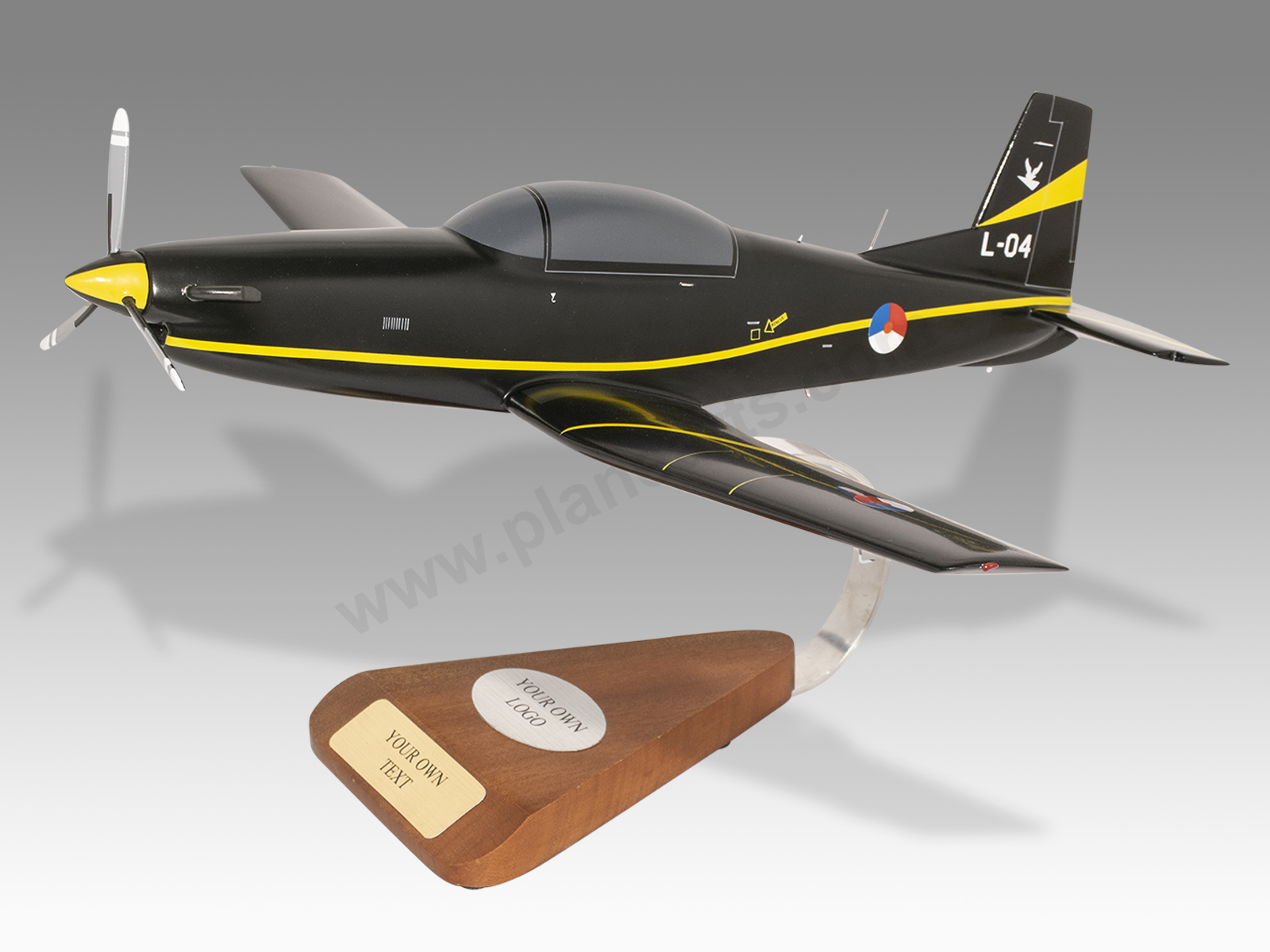
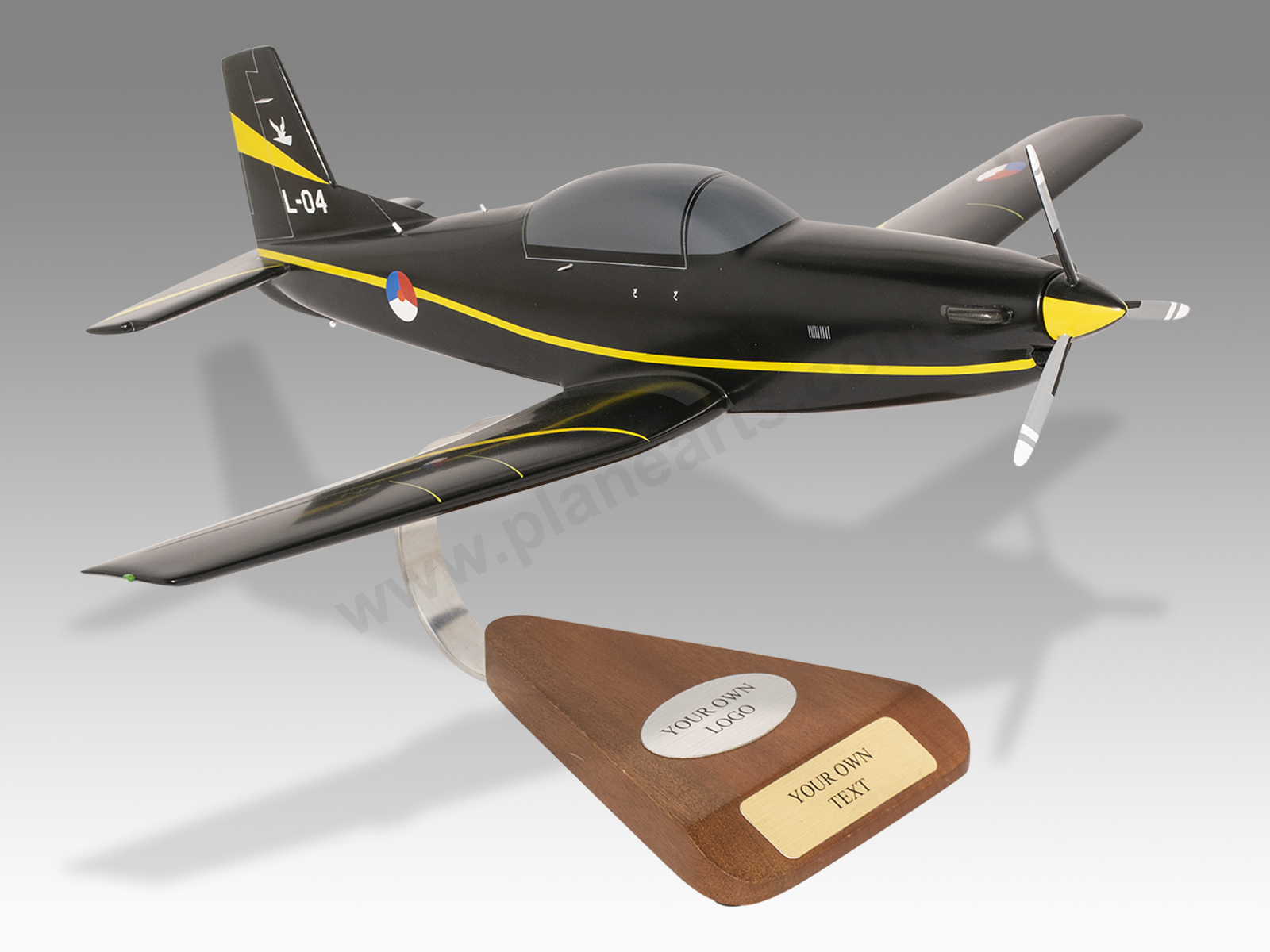
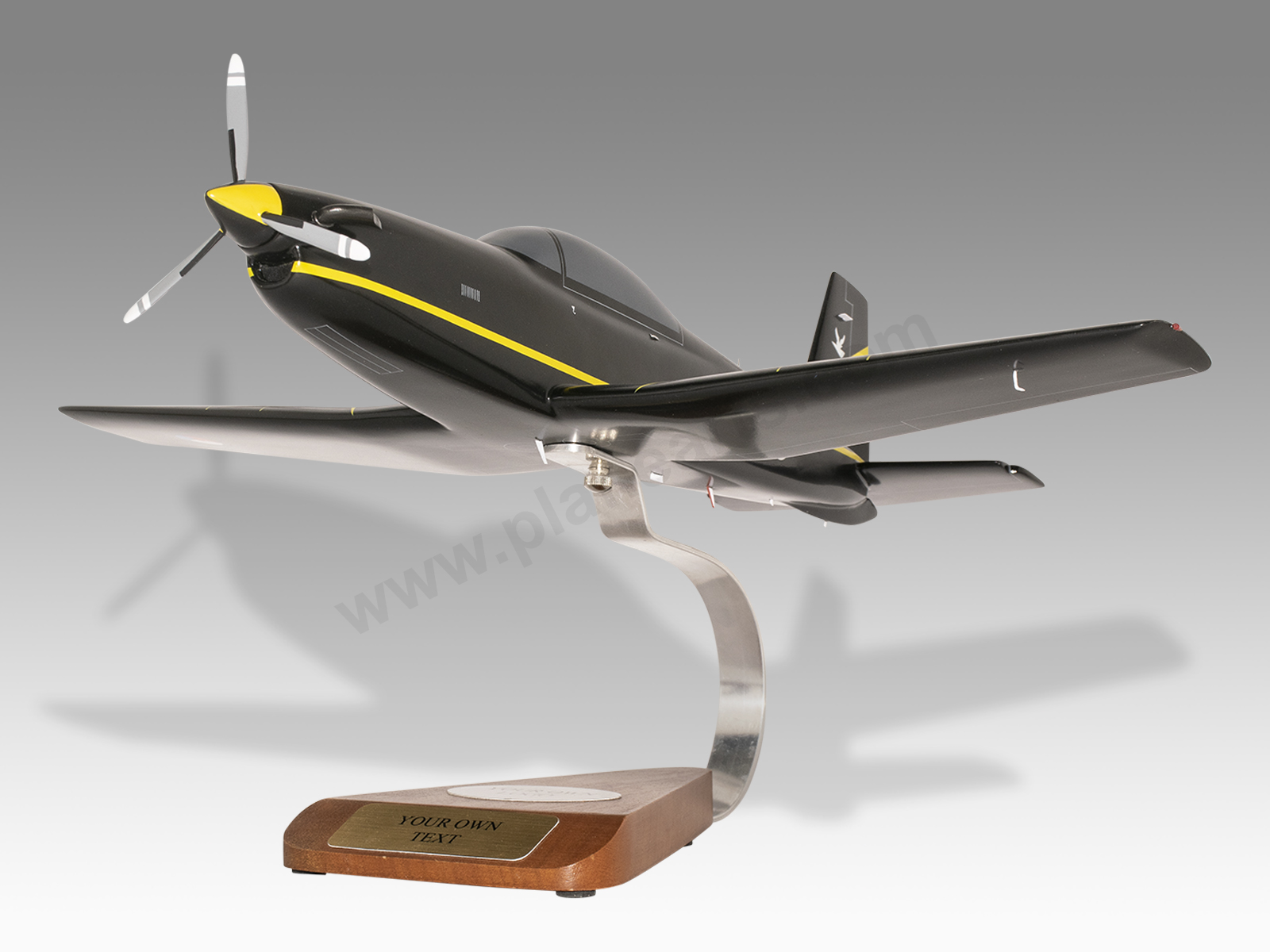
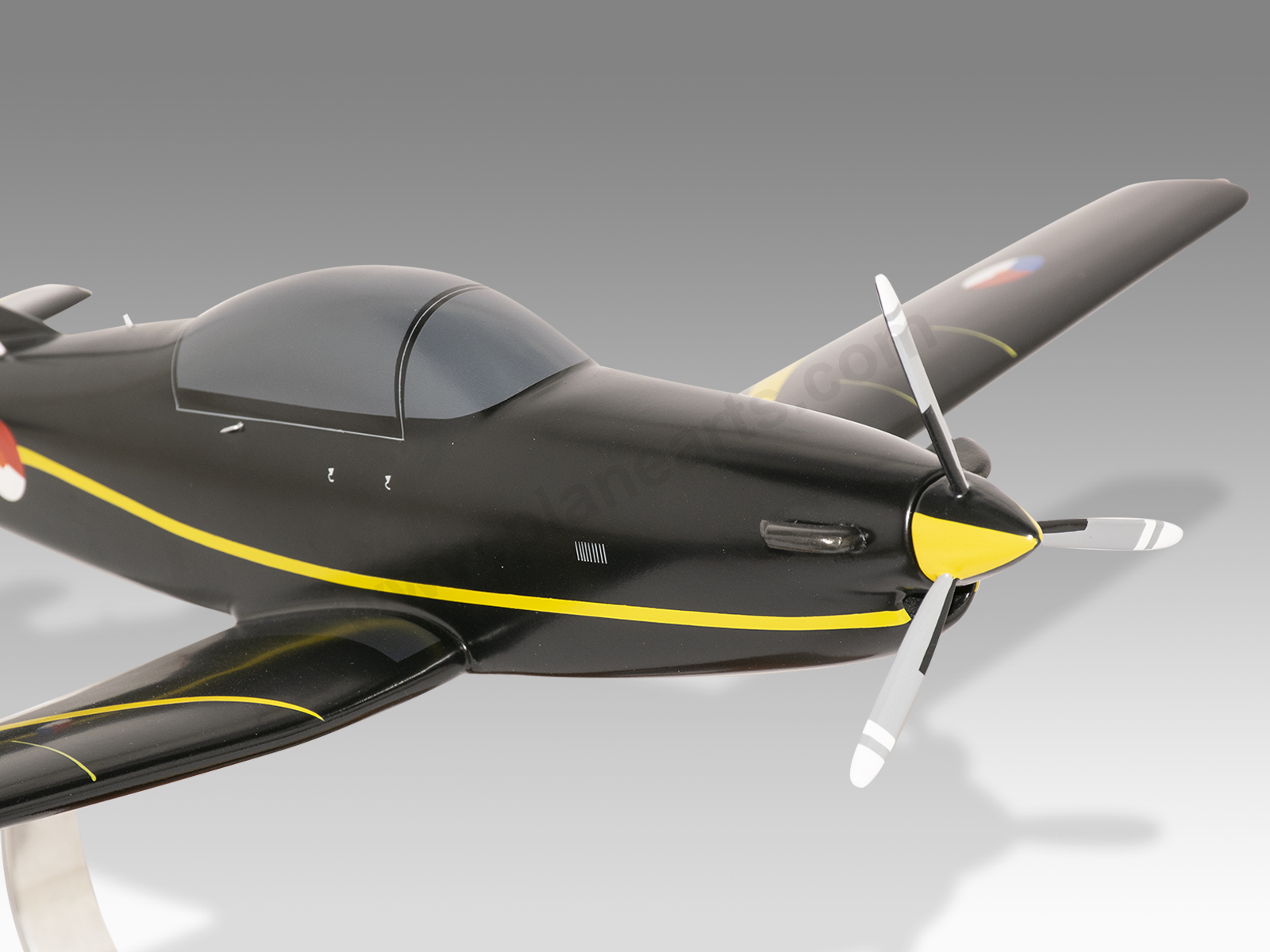
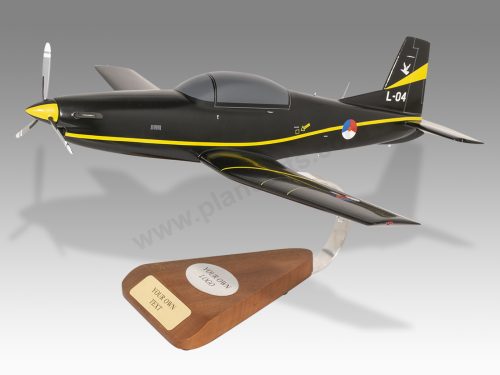
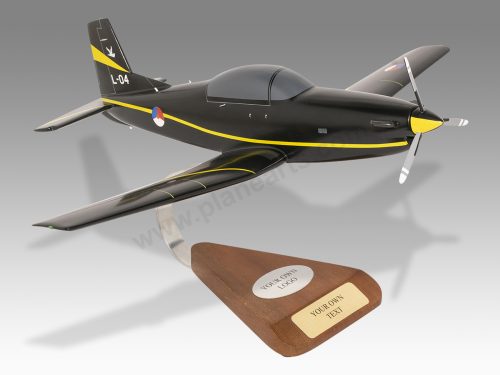
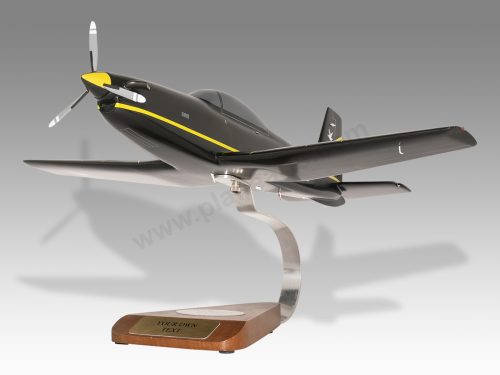
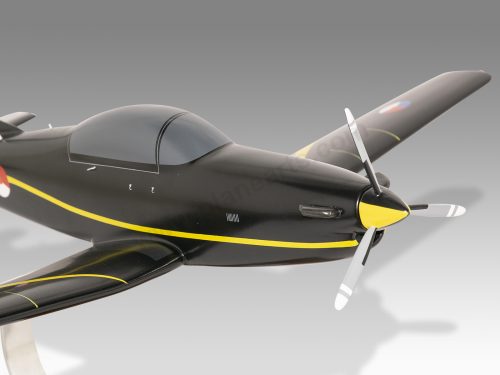
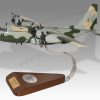
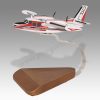
Reviews
There are no reviews yet.